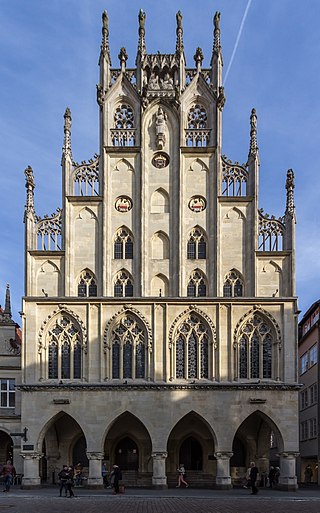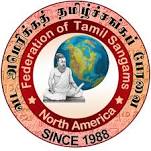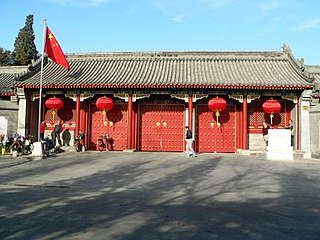Related Research Articles

The Peace of Westphalia is the collective name for two peace treaties signed in October 1648 in the Westphalian cities of Osnabrück and Münster. They ended the Thirty Years' War (1618–1648) and brought peace to the Holy Roman Empire, closing a calamitous period of European history that killed approximately eight million people. Holy Roman Emperor Ferdinand III, the kingdoms of France and Sweden, and their respective allies among the princes of the Holy Roman Empire, participated in the treaties.

The World Council of Churches (WCC) is a worldwide Christian inter-church organization founded in 1948 to work for the cause of ecumenism. Its full members today include the Assyrian Church of the East, the Oriental Orthodox Churches, most jurisdictions of the Eastern Orthodox Church, the Union of Utrecht, the Lutheran World Federation, the Anglican Communion, the Mennonite churches, the World Methodist Council, the Baptist World Alliance, the World Communion of Reformed Churches, the Pentecostal churches, the Moravian Church and the Malankara Mar Thoma Syrian Church. Notably, the Catholic Church is not a full member, although it sends delegates who have observer status to meetings.
HJ International Graduate School for Peace and Public Leadership is a private Unification Church-affiliated graduate seminary headquartered in Midtown Manhattan, New York City, New York. It was known as Unification Theological Seminary (UTS) from its founding in 1975 until July 2023.
World government is the concept of a single political authority with jurisdiction over all of Earth and humanity. It is conceived in a variety of forms, from tyrannical to democratic, which reflects its wide array of proponents and detractors.

The World Jewish Congress (WJC) is an international federation of Jewish communities and organizations, founded in Geneva, Switzerland in August 1936. According to its mission statement, the World Jewish Congress's main purpose is to act as "the diplomatic arm of the Jewish people". Membership in the WJC is open to all representative Jewish groups or communities, irrespective of the social, political or economic ideology of the community's host country. The World Jewish Congress headquarters are in New York City, and the organization maintains international offices in Brussels, Belgium; Jerusalem; Paris, France; Moscow, Russia; Buenos Aires, Argentina; and Geneva, Switzerland. The WJC has special consultative status with the United Nations Economic and Social Council.

The United States Institute of Peace (USIP) is an American federal institution tasked with promoting conflict resolution and prevention worldwide. It provides research, analysis, and training to individuals in diplomacy, mediation, and other peace-building measures.

Interfaith dialogue, also known as interreligious dialogue, refers to cooperative, constructive, and positive interaction between people of different religious traditions and/or spiritual or humanistic beliefs, at both the individual and institutional levels.
Freedom of religion in Germany is guaranteed by article 4 of the German constitution. This states that "the freedom of religion, conscience and the freedom of confessing one's religious or philosophical beliefs are inviolable. Uninfringed religious practice is guaranteed." In addition, article 3 states that "No one may be prejudiced or favored because of his gender, his descent, his race, his language, his homeland and place of origin, his faith or his religious or political views." Any person or organization can call the Federal Constitutional Court of Germany for free help.
Freedom of religion in France is guaranteed by the constitutional rights set forth in the 1789 Declaration of the Rights of Man and of the Citizen.

Islam is the majority religion in Azerbaijan, but the country is considered to be the most secular in the Muslim world. Estimates include 90% and 99.2% of the population identifying as Muslim. Of these, a majority belong to the Shia branch (45-55%), while a significant minority (35%-40%) are Sunni. Traditionally, the differences between these two branches of Islam have not been sharply defined in Azerbaijan.
The Pontifical Council for Justice and Peace was a pontifical council of the Roman Curia dedicated to "action-oriented studies" for the international promotion of justice, peace, and human rights from the perspective of the Roman Catholic Church. To this end, it cooperated with various religious institutes and advocacy groups, as well as scholarly, ecumenical, and international organizations.
James Edward Kearney was an American prelate of the Roman Catholic Church. He served as bishop of the Diocese of Salt Lake City in Utah (1932–1937) and bishop of the Diocese of Rochester in New York (1937–1966).

The Federation of Tamil Sangams in North America (FeTNA) is a non-profit organization of Tamil organizations in the United States and Canada. It is a registered, non-profit, tax-exempt 501(c)(3) organization and founded in 1987 by five Tamil organizations: Tamil Association of Delaware Valley, Tamil Sangam of Washington & Baltimore, New York Tamil Sangam, Ilankai Tamil Sangam and Harrisburg Tamil Sangam. In July 2018, it stated that it represents 50 Tamil organizations based in America and Canada.

The National Religious Affairs Administration (NRAA), formerly the State Administration for Religious Affairs (SARA), is an external name of the United Front Work Department of the Central Committee of the Chinese Communist Party (CCP). Formerly, it was an executive agency directly under the State Council of the People's Republic of China which oversaw religious affairs in the country. SARA was merged into the UFWD in 2018. The names of the former agency were retained by the UFWD as external names under the system called "one institution with two names".

The International Catholic Conference of Scouting (ICCS) is an autonomous, international body committed to promoting and supporting Catholic Scout associations and to be a link between the Scout movement and the Catholic Church. Its headquarters is located in Rome, Italy.

Francis Joseph Haas was an American prelate of the Roman Catholic Church. He served as the sixth bishop of the Diocese of Grand Rapids in Michigan from 1943 until his death in 1953.

Relations between Algeria and the Holy See have been tensions in the relationship in recent years due to criticism of the Algerian government by the Vatican and increasing restrictions imposed on Algerian Catholics.

Catholic (National) Commission for Justice and Peace (NCJP) was formed in 1985 by the Catholic Bishops' Conference of Pakistan. It provides services in the field of human rights advocacy.

The Catholic Church in South Sudan is composed of one ecclesiastical province with one archdiocese and six suffragan dioceses. There have been a total of 31 bishops in South Sudan to date. The bishops of South Sudan and Sudan are currently members of one single bishops' conference, designated as Sudan Catholic Bishops’ Conference.
The FIMCAP, which is short for Fédération Internationale des Mouvements Catholiques d'Action Paroissiale, is an umbrella organization for Catholic youth organizations. Its 31 member organizations are based in 28 countries. The FIMCAP was founded in 1962 and is recognised as an official Catholic organization by the Dicastery for Laity, Family and Life. FIMCAP is also a full member of the European Youth Forum.
References
- ↑ "Archives" . Retrieved 2008-08-01.
- ↑ "Harder than war". Archived from the original (book review) on 2008-07-20. Retrieved 2008-08-01.
- ↑ Fiske, Edward B. (1966-03-18). "Religious Parley Urge Cease-fire". The New York Times (March 18). Retrieved 2008-08-01.